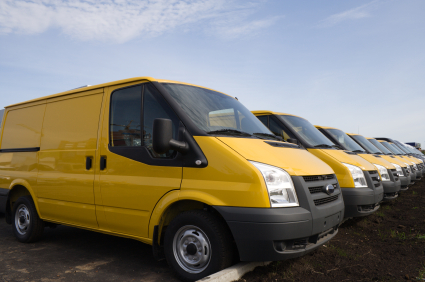Van Insurance for Commercial Use
Considering drivers, work equipment, licenses and other factors for your business van policy
There are two types of van insurance: personal and commercial. Commercial van insurance deals with the vans used in business, such as those for construction, painting or delivery operations.
This sort of business insurance is different than a personal auto insurance policy and is closely related to fleet car insurance.
Getting Started With a Van Policy
Many personal car insurance policies don’t cover the vehicle while it’s being used in commercial settings. That’s why a personal auto policy is inadequate for commercial use. But commercial van insurance is designed specifically for a work-related van.
Commercial van insurance is underwritten by an insurance company that specializes in insurance risks. However, most major property and casualty insurers have a commercial insurance subsidiary. Chances are the same agent or broker who handled your personal policies can handle a commercial policy.
Registration and Drivers for Van Insurance
The van should be dedicated to commercial purposes. Ideally, it should be registered by a sole proprietorship DBA or corporation rather than an individual. The driver is insured as well. The driver should be able to document proof the he or she is licensed to drive the insured vehicle.
With a van a regular driver’s license should suffice, but with a larger vehicle a commercial driver license (CDL) may be required. Check with your state for specific requirements.
The driver’s record should also be good. It doesn’t to be perfect, but the driver may be declined if there are too many incidents on their record. Many commercial insurance carriers won’t insure a driver under age 25 regardless of driving record. Remember, all drivers need to be specifically listed on a commercial policy. These rules are much stricter than with a personal policy.
Commercial insurance is geared towards change. As long as they qualify, adding and removing both vehicles and drivers is usually a simple matter of submitting a change request to the insurance agent. The important thing to remember is to keep it current.
Extras on a Van Insurance Policy
Van insurance is only the first part of the commercial insurance process. If you’re using a van for work, you may have many valuables for your job in the van. Unfortunately, van insurance usually only covers the van itself and whatever was bolted inside of it by the factory. Tools and equipment need to be insured separately.
In a commercial setting this is typically accomplished by an “inland marine” policy. The same company that wrote the van policy should be able to write the inland marine policy. Just get your equipment together, place a value and date of manufacture on it, and submit the list to your insurance company. Premiums on inland marine policies are typically quite reasonable, and well worth every penny if something happens.
Also, don’t forget about your trailer. If you have a trailer, you’ll need to insure that separately. Trailers can usually be added to the commercial auto insurance policy. All of these things will help if you need to insure your commercial van.
Trackback from your site.

